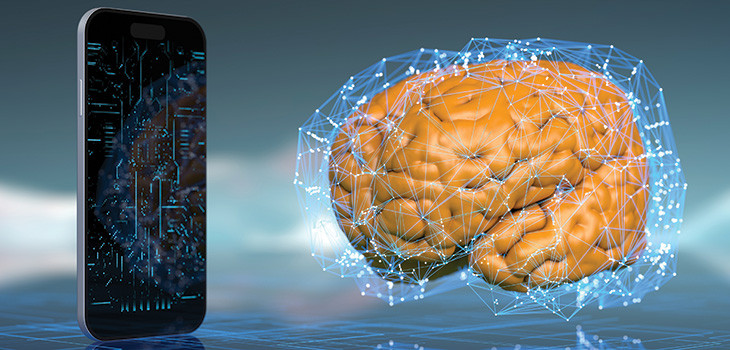*/

In an era where the surge of artificial intelligence (AI) captures global attention, an equally important but less discussed advancement is making waves – the intersection of neurotechnology and law. This pivotal juncture in human innovation has prompted the establishment of the Institute of Neurotechnology & Law, spearheaded by Harry Lambert, a barrister with a unique blend of expertise in product liability, privacy, and medical law.
In recent years neurotechnology has made great strides, and we now live in a world where brain to brain communication, memory scanning and transcription of thoughts to text (to name but a few) are all possible. As neurotechnology swiftly evolves, its integration into everyday life will have profound implications on privacy, ethics and personal autonomy. Suddenly we need to protect a whole new raft of rights that we never imagined needed protection; what the ethicist Rafael Yuste has called ‘neurorights’.
The foundation of the Institute comes at a critical time. It is no exaggeration to say that recent advances in neurotechnology mark a crucial moment; it is imperative that we engage in balanced and informed debates about neurorights.
The Institute of Neurotechnology & Law aims to ensure that as these technologies develop, they do so in a manner that aligns with the best interests of humanity. The core mission is to foster discussions that will guide the responsible development of neurotechnological innovations. By bringing together legal experts, technologists, bioethicists and policymakers, the Institute seeks to build a robust framework for ethical governance and legislation in this dynamic arena.
It’s common to hear debates surrounding AI, but the fascinating topic of neurotechnology and its legal implications remains largely in the shadows. The Institute of Neurotechnology and Law is set to change that, ensuring that this area receives the attention and scrutiny it deserves. Find out more at www.neurotechlaw.com

In an era where the surge of artificial intelligence (AI) captures global attention, an equally important but less discussed advancement is making waves – the intersection of neurotechnology and law. This pivotal juncture in human innovation has prompted the establishment of the Institute of Neurotechnology & Law, spearheaded by Harry Lambert, a barrister with a unique blend of expertise in product liability, privacy, and medical law.
In recent years neurotechnology has made great strides, and we now live in a world where brain to brain communication, memory scanning and transcription of thoughts to text (to name but a few) are all possible. As neurotechnology swiftly evolves, its integration into everyday life will have profound implications on privacy, ethics and personal autonomy. Suddenly we need to protect a whole new raft of rights that we never imagined needed protection; what the ethicist Rafael Yuste has called ‘neurorights’.
The foundation of the Institute comes at a critical time. It is no exaggeration to say that recent advances in neurotechnology mark a crucial moment; it is imperative that we engage in balanced and informed debates about neurorights.
The Institute of Neurotechnology & Law aims to ensure that as these technologies develop, they do so in a manner that aligns with the best interests of humanity. The core mission is to foster discussions that will guide the responsible development of neurotechnological innovations. By bringing together legal experts, technologists, bioethicists and policymakers, the Institute seeks to build a robust framework for ethical governance and legislation in this dynamic arena.
It’s common to hear debates surrounding AI, but the fascinating topic of neurotechnology and its legal implications remains largely in the shadows. The Institute of Neurotechnology and Law is set to change that, ensuring that this area receives the attention and scrutiny it deserves. Find out more at www.neurotechlaw.com


The Bar Council is ready to support a turn to the efficiencies that will make a difference
By Louise Crush of Westgate Wealth Management
Marie Law, Director of Toxicology at AlphaBiolabs, examines the latest ONS data on drug misuse and its implications for toxicology testing in family law cases
An interview with Rob Wagg, CEO of New Park Court Chambers
What meaningful steps can you take in 2026 to advance your legal career? asks Thomas Cowan of St Pauls Chambers
Marie Law, Director of Toxicology at AlphaBiolabs, explains why drugs may appear in test results, despite the donor denying use of them
Ever wondered what a pupillage is like at the CPS? This Q and A provides an insight into the training, experience and next steps
The appointments of 96 new King’s Counsel (also known as silk) are announced today
Ready for the new way to do tax returns? David Southern KC continues his series explaining the impact on barristers. In part 2, a worked example shows the specific practicalities of adapting to the new system
Resolution of the criminal justice crisis does not lie in reheating old ideas that have been roundly rejected before, say Ed Vickers KC, Faras Baloch and Katie Bacon
With pupillage application season under way, Laura Wright reflects on her route to ‘tech barrister’ and offers advice for those aiming at a career at the Bar